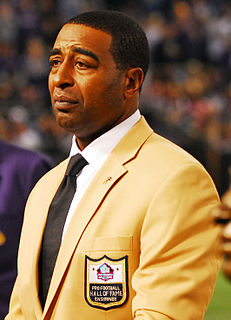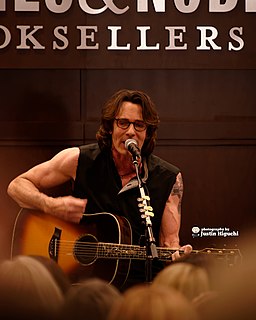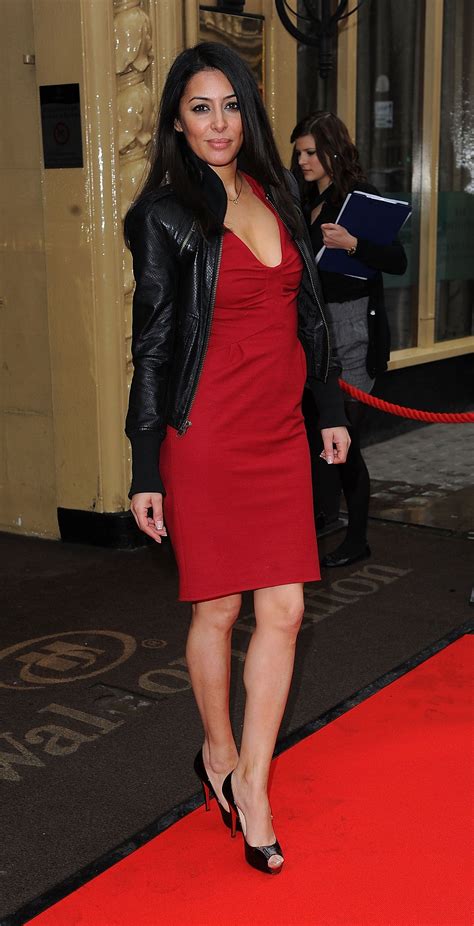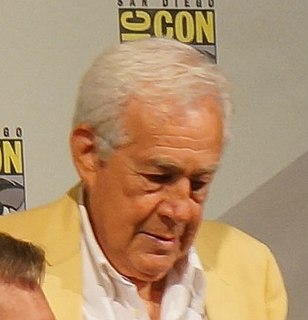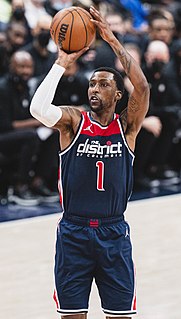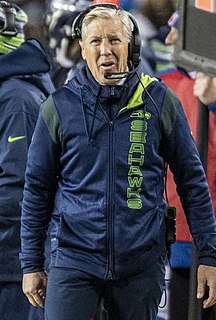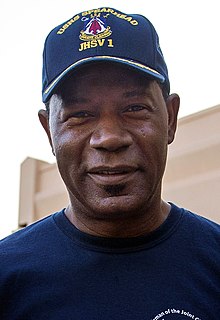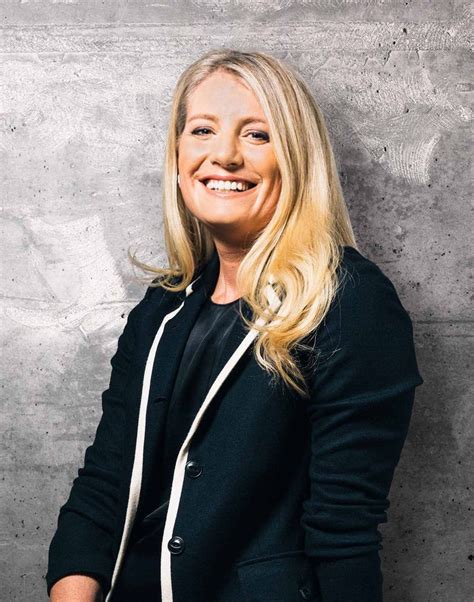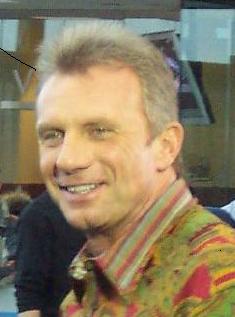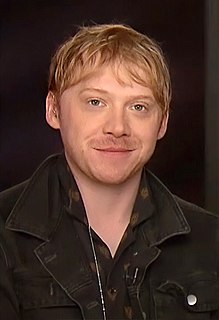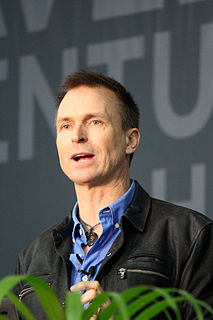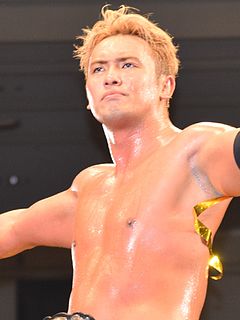A Quote by Cris Carter
Ronnie Lott - he got a really good shot on me once and I learned that unless I wanted to shorten my career, I needed to steer clear of his path.
Related Quotes
I got my shot at the movies. I love doing standup live. I didn't know what I wanted to do. I wanted to try movies, so I gave it a shot. I had two shots and I didn't really do it. That wasn't really happening for me. On the second movie I got to meet the girl that would be my wife. So I got to hang out with her and get engaged, and get the whole wedding thing. It was really great.
The only good grades I ever got in school before I was kicked out were for creative writing. I thought that fiction might be in my future but then my career took a different path once the Beatles showed me what a blast being in a band could be. Writing my memoir Late, Late at Night reminded me how much I love the craft. So I decided to give fiction a shot again.Magnificent Vibration is the result. I’m still not quite sure where it came from, but once I got going, it practically wrote itself. I’ve heard writers I admire speak of that phenomenon, so maybe I’m on the right track.
Early in my career, a critic said that I needed to "explain" the irony in my work, suggesting that I needed to add text next to the images to help people understand what I was trying to say. At first I was dismayed that I wasn't making work with a clear enough message. That's when I realized that that was the exact opposite of what I wanted to do - that I wasn't responsible for a misinterpretation of my work, that there should be some ambiguity to it. They either got it, or they didn't.
I knew that they were going to be reading actors for Manute, and I wanted to give it a shot. I wanted a shot to do it, and they embraced that and said, "All right, come on in. Let's see what you've got." So, I went in, and the rest is history. It felt good when I went into the office, and it just worked.
A career is measured over the course of the years, not moments. Over good decisions, over successes, not moments, failures, missteps, or bad comments. I learned that I needed to take a step back and look at my career not in that one moment that made me feel really bad, but what I had done not even in the past one or two years or last one or two hires, but that that career is built over many, many, many, many successive quarters and years and good decisions - never, ever made in that one moment where you felt really bad.
I was such a huge fan of Harry Potter books. That's how I got into it. I had never really thought about acting or a career. I just wanted to be Ron, really. It was a very unusual introduction into the industry, and we learned so much. It's been a real education and an evolution. I really, really enjoy this.
It is the most powerful submission in the sport. It is a beautiful thing. You're holding them into you, their back is on you, and you are basically choking them gradually like a boa constrictor and once you've got them, the pressure goes on and they have to submit or they are going to stop breathing. It happened to me early in my career, and I panicked, and gave in, I tapped out too early. I learned a lot from that. I learned from it, learned how to do the move better, learned how to avoid it being done to me.
I once had a young musician come to me and say that he wanted to be a professional musician. I asked him to write his list. When he came back to me, the three things in his life he most wanted were: to be paid for his music; to travel around the world; to meet new people. We came to the decision, after thinking really creatively, that if he got a job on a cruise ship, he would fulfill those goals.
